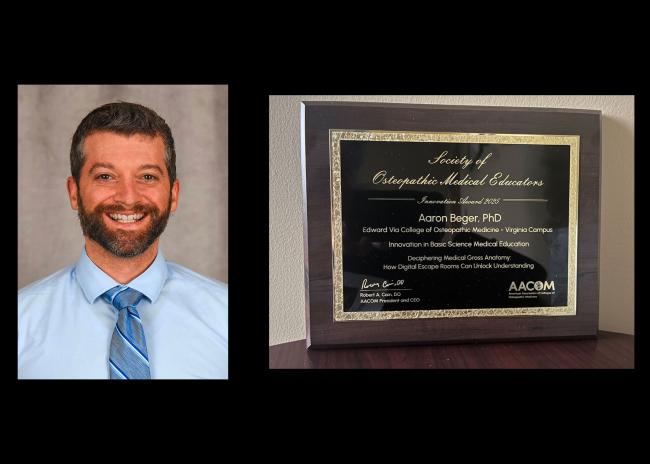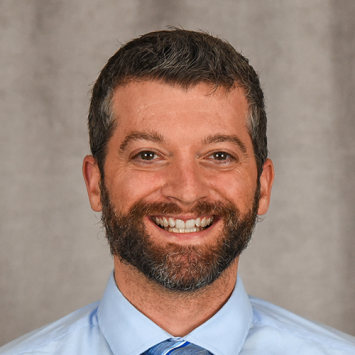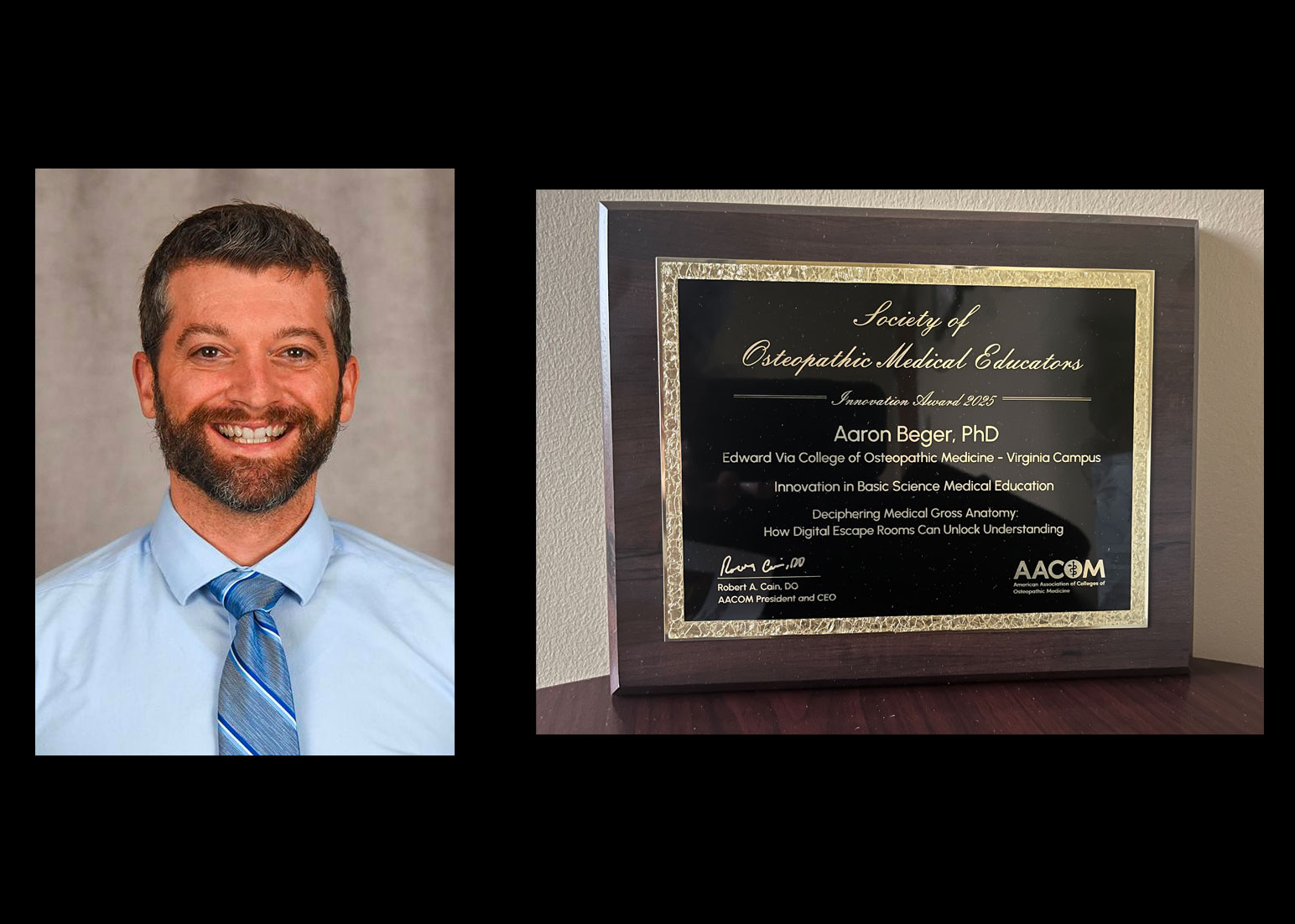
We’ve always known VCOM has some of the very best faculty around, and we’re always glad when our faculty members get official recognition of how awesome they are.
Such was the case for Aaron Beger, PhD, assistant professor of anatomical sciences at VCOM, who was recently honored by the Society of Osteopathic Medical Educators (SOME) and AACOM with their Innovation Award in Basic Science Medical Education for his project, “Deciphering Medical Gross Anatomy: How Digital Escape Rooms Can Unlock Understanding.”
Each year, SOME selects two winners of this prestigious award, recognizing their unique and creative teaching strategies in osteopathic medical education. Applications are peer reviewed, and winners receive national recognition.
Beger’s winning project integrated VCOM’s 3D Virtual Human Dissector (VHD) software—recently added to the anatomy curriculum—into a virtual escape room (ER). He designed an engaging activity where students used the VHD software to solve puzzles and riddles, adding a fun, gamified element to the learning process.
To test the ER’s effectiveness, Beger recruited second-year VCOM-Virginia student Riya Patel to help build the activity and collect participant feedback. “We collaborated with Eva Sweeney, a former colleague and a mastermind of gamified learning,” Beger says. Anonymous surveys and a focus group showed that participants found the ERs enjoyable and engaging, encouraging them to think about material in new ways and identify knowledge gaps. The research also examined different designs, delivery methods, and participant groupings, revealing opportunities to optimize the experience. You can read the published study online.

Medical education attracts intelligent, creative, and passionate individuals. It’s an honor to be recognized, but right now someone else is working on something even cooler, and I can’t wait to see it.
A Michigan native, Beger joined VCOM on the recommendation of his longtime friend and colleague Jonathan Millard, VCOM’s discipline chair and associate professor of anatomical sciences. “I appreciated VCOM’s mission and was drawn to the opportunity to teach in an integrated curriculum,” Beger says. “I also loved the outdoor activities in Blacksburg and the region’s great climate.”
VCOM’s integrated curriculum blends basic sciences like anatomy and physiology with clinical sciences like patient care and diagnostics, mirroring how medical knowledge is used in practice. As a result, Beger works with VCOM students throughout their preclinical studies. “Students often ask thought-provoking questions that keep me on my toes,” he says. “They also teach me current lingo and pop culture references so I can stay hip to the jive,” he adds with a laugh.
